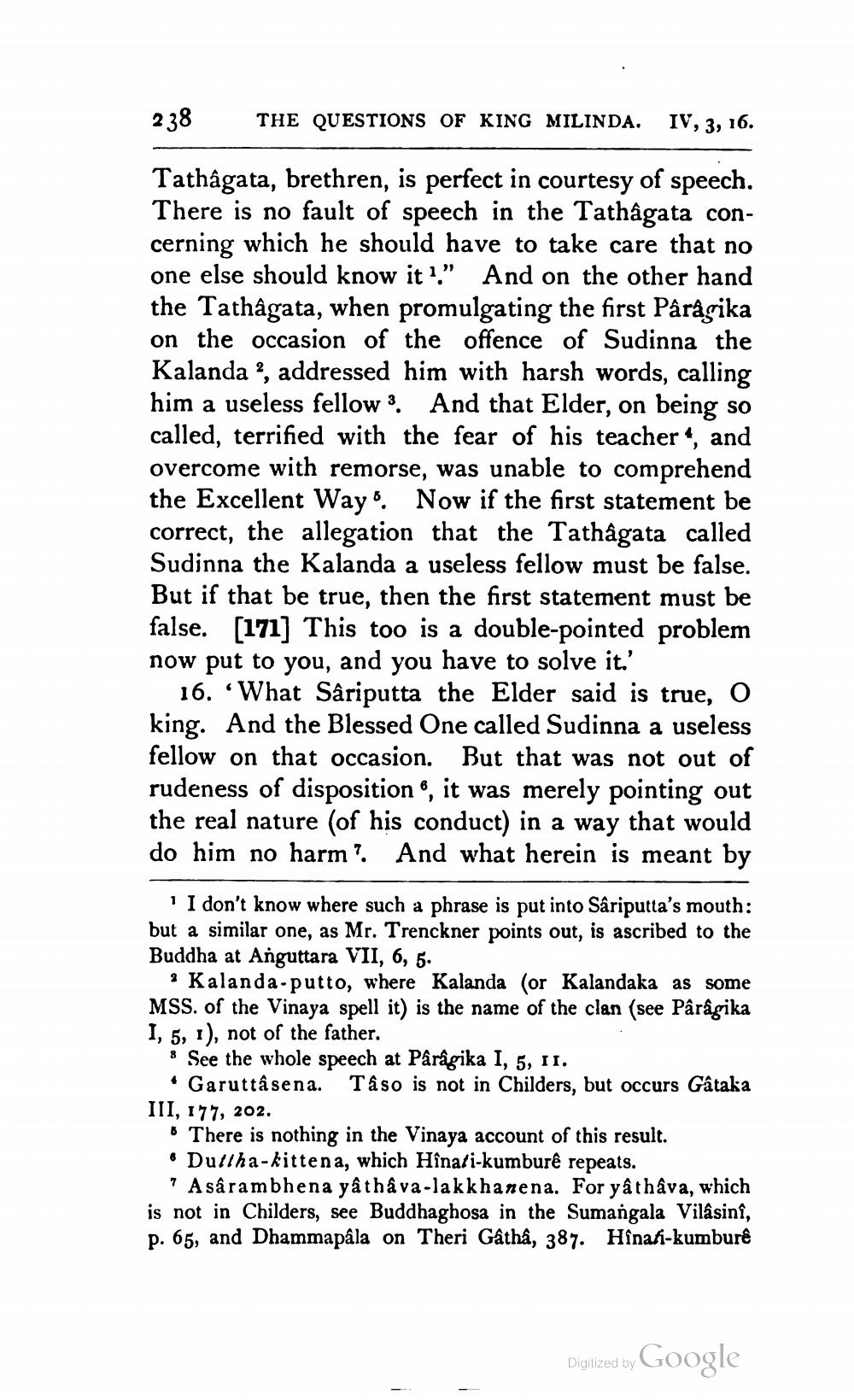________________
238
THE QUESTIONS OF KING MILINDA. IV, 3, 16.
Tathagata, brethren, is perfect in courtesy of speech. There is no fault of speech in the Tathagata concerning which he should have to take care that no one else should know it?.” And on the other hand the Tathagata, when promulgating the first Pârâgika on the occasion of the offence of Sudinna the Kalanda ?, addressed him with harsh words, calling him a useless fellow 3. And that Elder, on being so called, terrified with the fear of his teacher, and overcome with remorse, was unable to comprehend the Excellent Way. Now if the first statement be correct, the allegation that the Tathagata called Sudinna the Kalanda a useless fellow must be false. But if that be true, then the first statement must be false. [171] This too is a double-pointed problem now put to you, and you have to solve it.'
16. What Sâriputta the Elder said is true, O king. And the Blessed One called Sudinna a useless fellow on that occasion. But that was not out of rudeness of disposition, it was merely pointing out the real nature (of his conduct) in a way that would do him no harm? And what herein is meant by
' I don't know where such a phrase is put into Sâriputta's mouth: but a similar one, as Mr. Trenckner points out, is ascribed to the Buddha at Anguttara VII, 6, 5.
? Kalanda-putto, where Kalanda (or Kalandaka as some MSS. of the Vinaya spell it) is the name of the clan (see Pârâgika I, 5, 1), not of the father.
8 See the whole speech at Parágika I, 5. II.
• Garuttâsena. Tâso is not in Childers, but occurs Gâtaka III, 177, 202.
0 There is nothing in the Vinaya account of this result. • Duttha-kittena, which Hînati-kumburê repeats.
7 Asârambhena yathava-lakkhanena. For yâthâva, which is not in Childers, see Buddhaghosa in the Sumangala Vilâsinî, p. 65, and Dhammapala on Theri Gâtha, 387. Hînati-kumburê
Digitized by Google




